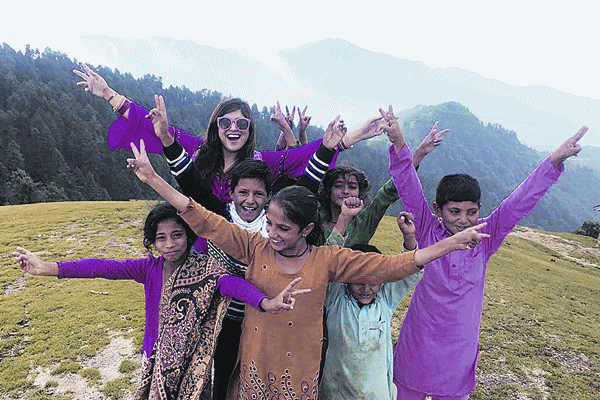Wovoyage trains Indian women to break ‘unsafe India’ tag for solo women travellers
Rashmi Chadha has been feeding her love for travel since childhood. Participating in sports events was just an excuse to let her travel to different cities and it is during this period she realised how many Indian women refrain from travelling due to safety reasons. And those who still manage to be brave, are stopped by the society’s unapproved look on solo women travel.
For Rashmi, things were different as her mother itself was her favourite travel companion. The exposure to travelling alone and with women led her to identify several issues women can face during their trips and thus was born ‘Wovoyage’.
Wovoyage encourages women from India as well as abroad to embark on their solo journeys to the lesser known destinations of India without any fear or restrictions. From adventure tourism to business and wellness tourism, the company customises its trips according to what the traveller wants. Speaking about the initial fears the foreigners have, Chadha said, “First, they are concerned about their safety and the environment they are going to stay in. Hence, they come well prepared for their travel and conduct all the necessary research before coming to India and based on this, I’m asked things about preferred clothing, the language barrier, safety provided, etc. I even get asked about frauds and pickpocketing and how Wovoyage can protect them from that.”

The company provides a checklist for the women with all the information in it. Chadha assures them safety by providing the details of the accommodation and location they will be staying in. “From their stay to the transportation, we keep them in the loop about everything and be as transparent as we can. My aim is to not only let the travellers have an enriching trip but also to portray India as a safe place from the pre-trip to during the trip,” she adds.
To further empower women, Chadha conducts online training programmes to women of Puducherry, Jaipur, Jodhpur, Agra and Mumbai. There are many girls in the country who have taken language courses in foreign languages but due to lack of opportunities don’t know how to utilise these skills for their betterment. Further emphasising on this, Chadha said, “There are even unemployed women who know a lot about the destinations people choose for trips and so through these training programmes, we train them on how to deal with tourists ultimately leading to growth in female employment.”
When it comes to the government, she feels that the concept of ‘Atithi devo bhava’ needs to be taken more seriously and information centres for tourists should be set up in large numbers across India.
With over 1200 successfully completed tours and a million happy women travellers, Chadha hopes to further break the ‘unsafe tag’ that the Indian travel space has been stereotyped into.

